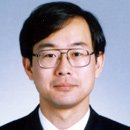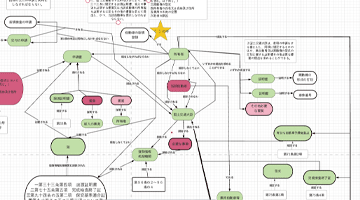RESEARCH
Building a legal information utilization platform using Linked Open Data for mobility innovation
Building a legal information utilization platform using Linked Open Data for mobility innovation
“Mobility Innovation,” the area TMI works on, requires deliberation on future amendments and enactment of laws. To this end, current laws as well as the processes that led to past amendments of related laws must be referenced. Although referencing past laws is critical in the legal field, such work requires tremendous effort because often the information is unavailable as electronic data.
There are also many types of legal sources surrounding “Mobility Innovation.” In addition, the meaning of a term can vary between laws. For example, the term “ordinary vehicle” includes buses in some laws but not in others. Therefore, it is not easy to comprehensively grasp related laws and administrative regulations. It is beneficial to generate digital data to link the relationships of related laws. This data is also a useful resource for developers working on new mobility technologies. Facilitating utilization and searches of existing regulations aids in selecting references and interpreting the searched results.
Therefore, our research strives to achieve easier referencing and utilization of mobility related laws by generating digital data, including 1) changes of laws as a timeseries and 2) the relationships among related laws.
As an approach to link related legal data to easily grasp information, we are introducing a method known as Linked Open Data (LOD). LOD structuralizes extracted relationships among information (data) for facile searches and utilization. This method requires the content of laws to be divided into three parts: subject, predicate, and object. Extraction of the relationships in the legal content utilizes the knowledge of law experts.
This research is conducted collaboratively by three researchers with different backgrounds. By overcoming the differences in wording and awareness between arts and science backgrounds, integration of arts and science is experienced hands-on, which is the real pleasure of TMI activities.
Structuralizing laws related to mobility using LOD is an unprecedented initiative. The first goal is to create a Resource Description Framework (RDF) network of various terms used in each law. This is a formidable task. However, we continue to make progress through interdisciplinary collaboration.
(Interviewed in January 2022)

Specially appointed lecturer, Global Research Institute for Mobility in Society, Institutes of Innovation for Future Society, specializes in Administrative Law, and holds a Ph.D. (Law) from Nagoya University Graduate School of Law.

Katsuhiko Toyama
Professor, Scholarly Information Division, Information Technology Center, Nagoya University. His research interest is Intelligent Informatics.

Takahiro Komamizu
Associate Professor, Mathematical and Data Science Center, Nagoya University. His research interest is LOD.
Rie Yasuda: Aforementioned.

LOD generates a Resource Description Framework (RDF), which is a structure consisting of subject, predicate, and object. It extracts connections among components one by one; for example, “Road Transport Vehicle Law (subject) – regulates (predicate) – road transport vehicles (object)”.